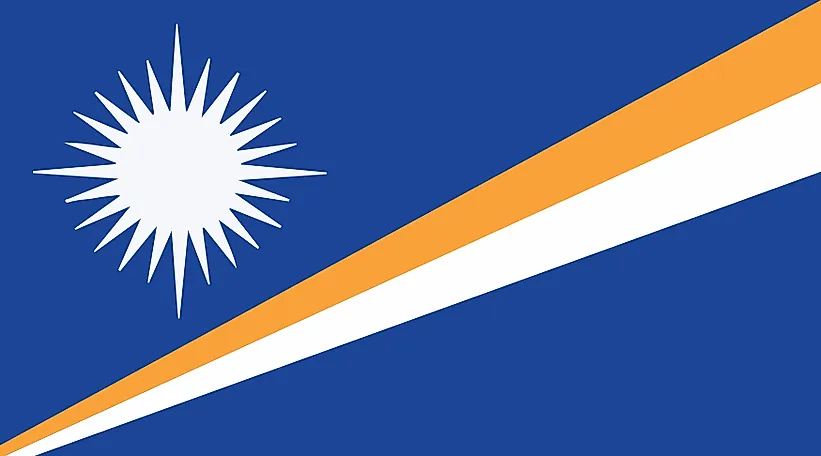
マーシャル諸島
| 大陸 | オセアニア |
| 資本金 | マジュロ |
| 人口 | 73,376 |
| GDP | $180.00 百万ドル |
| 一人当たりGDP | $3,300 |
| ダイヤルコード | +692 |
| ISOコード(2文字) | MH |
| ISOコード(3文字) | MHL |
Marshall Islands Landscapes






About Marshall Islands
Welcome to the Marshall Islands, a nation of coral atolls scattered across the central Pacific. With approximately 59,000 people occupying 181 square kilometers of land area spread across 1.9 million square kilometers of ocean, the Marshall Islands combines remarkable maritime heritage with resilient island culture.
地理的特徴と自然の美しさ
The Marshall Islands’ geography consists of 29 coral atolls and 5 single islands, arranged in two parallel chains: the Ratak (sunrise) and Ralik (sunset) chains. The country features pristine lagoons, coral reefs, and white-sand beaches, with most islands rising only a few meters above sea level.
The landscape includes extensive coral reef systems, which support rich marine biodiversity. The country’s location near the equator creates a tropical climate, though its position makes it vulnerable to climate change impacts.
Protected areas include various marine conservation zones and traditional resource management areas. The country’s commitment to environmental protection focuses on preserving its marine ecosystems and addressing climate change challenges.
文化遺産と伝統
Marshallese culture represents a rich maritime tradition, with sophisticated navigation techniques passed down through generations. The country’s heritage includes unique stick charts used for navigation, traditional canoe building, and complex social structures.
Traditional arts include weaving pandanus mats and handicrafts, while music and dance preserve cultural stories and traditions. The practice of traditional navigation, recognized by UNESCO as Intangible Cultural Heritage, remains an important cultural element.
Marshallese cuisine centers around seafood, coconut, and pandanus fruit, with traditional preservation methods still in use. The tradition of sharing resources and strong community bonds remains central to island life.
歴史の旅
The Marshall Islands’ history spans from early Micronesian settlement through various colonial periods to independence. The country’s strategic location led to significant involvement in World War II and subsequent nuclear testing.
Significant periods include traditional Micronesian society, German colonization, Japanese mandate, American administration following World War II, and independence in 1986 under the Compact of Free Association with the United States. The legacy of nuclear testing at Bikini and Enewetak atolls continues to influence national consciousness.
現代の経済状況
Today’s Marshallese economy combines traditional subsistence activities with modern sectors including fisheries and tourism. The country receives significant support through its Compact of Free Association with the United States.
Recent initiatives focus on climate change adaptation, sustainable development, and renewable energy. The Marshall Islands’ vast maritime territory provides opportunities for sustainable resource management.
国際関係とグローバルポジション
The Marshall Islands maintains strong ties with the United States while advocating for climate action in international forums. The country’s experience with rising sea levels makes it a powerful voice for environmental protection.
ご存知でしたか?
• The Marshall Islands was home to the world’s first shark sanctuary?
• Traditional stick charts used for navigation are unique to Marshallese culture?
• The country’s Bikini Atoll gave its name to the famous swimwear?
• The nation includes the world’s largest shark sanctuary?
結論
The Marshall Islands represents a unique combination of maritime heritage and modern challenges. From its traditional navigation practices to its climate change advocacy, from its pristine atolls to its nuclear legacy, the Marshall Islands continues to evolve while preserving its unique culture. As it addresses existential threats from climate change and economic development challenges, the Marshall Islands remains committed to sustainable practices while maintaining its distinctive island identity.